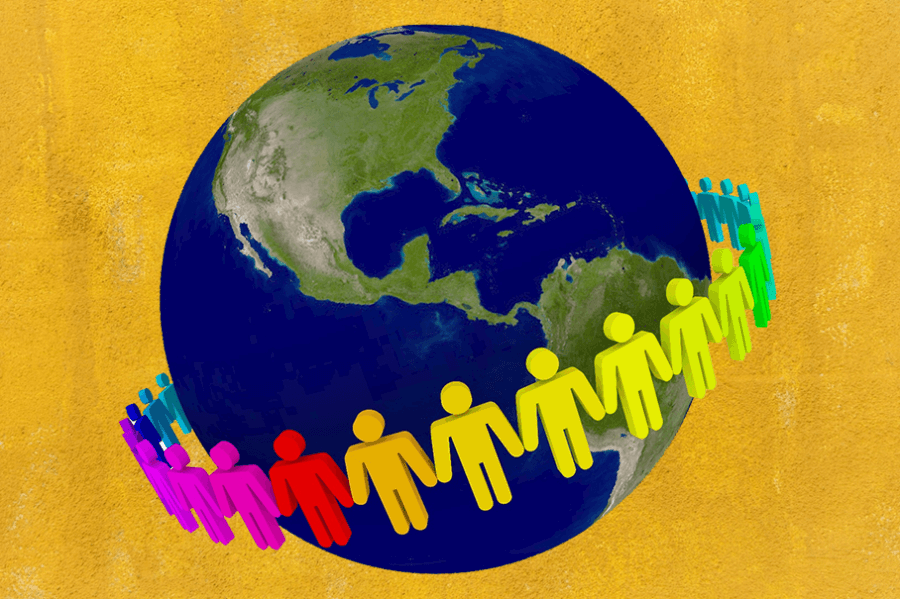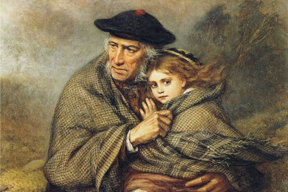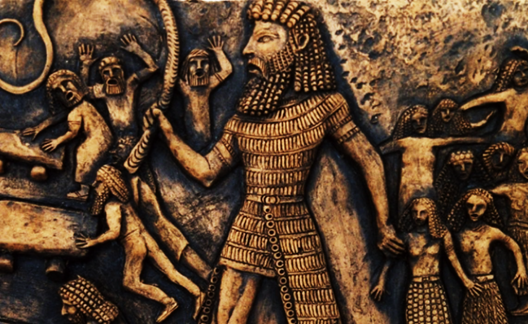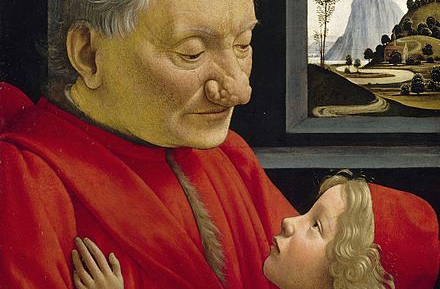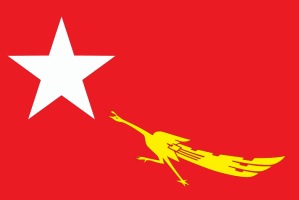When I Wasn’t Looking
In the grand scheme of things, I’m a nobody. I live on a small blue dot in the vast cosmos. I am one person in a world of 8 billion other people. To be honest, I am not giving myself a short shrift. Anyone who knows me would rank me far above the Donald in the cosmic pecking order.

My place in the grand scheme of things
However, I have several shortcomings. One of them is hubris. I assume that sentient beings will respond nearly always if I ask people for help or suggestions. When I tell them I need their guidance because I’m wrestling with some issue, I assume I’d get a response from those far above me in the cosmic pecking order.
For example, I have written to people in the past about things far less important than what I am facing today. I have letters from Carl Sagan, Sen. Paul Simon, Corazon Aquino, Charles Colson, Leo Buscaglia, and Desmond Tutu. John Cleese called me from London to help me. I have interviewed Min Ko Naing, Dr. John Woods, Peter Jennings, Studs Terkel, Dr. Thubten Norbu, John Astin, and Ron Magers. I have learned much from these people and am indebted to them.
That is the backstory. A couple of weeks ago, I got an email from someone who wanted information about Min Ko Naing. I didn’t know the person or the organization where she worked. The woman merely wanted me to reply to the email with information that I might have about Min Ko Naing. Instead of replying to the email, I called the person.
I told the gal about getting an email from her and wanted to provide what I knew. Her organization was looking into a possible project related to Myanmar. I told her I had interviewed Min Ko Naing a decade ago and was impressed by his courage to stand up to the military government. Much of his adult life has been spent in various gulags in Myanmar. That interview was on my first trip long before the recent military coup d'état.
I told her that I wasn’t sure if Min Ko Naing was still alive or was imprisoned again. Aside from Aung San Suu Kyi, he was the most important leader in the 88 Generation. After the phone call, I googled him, and he is still alive. I knew his name was Paw Oo Htun, but he changed it to Min Ko Naing, which means Conqueror of Kings.
I told the gal that I had been to Myanmar three times. I went on and on about my family and the US Embassy’s mistreatment of my oldest granddaughter in her trying to get a student visa. By the end of our call, this gal knew more about Ti Ti and her family than anyone else in the States. As we talked, she looked up my website, which I didn’t realize until she said, “That is you and your family.”
She knows about Ti Ti and me playing Scrabble and about her attending a college prep high school in Taunggyi. Ti Ti is now at Gusto University. I told her about teaching at a local college outside of Chicago and taught my last class online, which Ti Ti took and aced.
Our conversation jumped around about various topics for at least an hour. Somewhere in the middle of our chat, the gal asked why I went to Myanmar in the first place. I told her I wanted to interview Aung San Suu Kyi, the Lady, but failed. However, I found a young lady who was nine years old at the time. The first photo is of Ti Ti and me playing Scrabble. The other is Ti Ti, a decade later at Gusto.

I went on and on about racism and sexism at our embassy in Yangon. The embassy turned her down three times for a student visa.
This is a picture of Ti Ti’s office in my home.

The gal was truly empathic about my efforts to provide Ti Ti a college education. She had been accepted at where I taught and at another school. During our chat, I suggested that her team talk to Ti Ti about her country and what female college students face in Myanmar. Then her team could interview your parents, who live near Inle Lake.
I also gave her a link to a video that I sent to the chargé d’affaires at our embassy. The gatekeeper at the embassy determines what the chargé d’affaires sees. I have contacted a dozen people in America who worked in the State Department, the Department of Justice, an American ambassador, reporters, etc., about Ti Ti’s situation with our embassy and haven’t gotten any response from them.
In a couple of follow-up emails, I wrote about two items that drive me. I had danced with death a couple of times due to a subdural hematoma and prostate cancer. I was successful with both dances. Dancing with death teaches us that we are finite. Therefore, we should live in the moment, helping others.
The other transformative moment was after WWII when my father returned from the South Pacific. He got a promotion at the company where he worked several years later, which meant he had to move from Pennsauken, NJ, to Pittsburgh, PA. He asked a real estate agent about the best schools in the Pittsburgh area. Mt. Lebanon was the answer. It was, in fact, the 19th-best school system in the entire country and one of the wealthiest communities in the state. I went from a nice middle-class community and school system to a golden ghetto. I learned two things in Mt. Lebanon: I was dumb and poor. I realize I am neither, but that feeling was etched into my psyche.
Mixing dancing with death and being dumb and poor explains my drive. What fascinated me was that I replied to the gal about Min Ko Naing, and, in the process, she was going to talk to her company about the possibility of talking to my family in Myanmar.
In our chat over the phone or in several emails, I mentioned one of my mantras: It is in giving that we get. That sounds like an oxymoron, but it is life’s greatest truth. My family always thanks me for financial support. I have written to them that I get as much from giving to them as they receive. It is also why Ti Ti is going to college on my dime. I’m happy that I can help them. It goes back to moving into the golden ghetto of Mt. Lebanon, where I learned that I was dumb and poor. That feeling was etched into my psyche.
We had to memorize 100 lines of poetry or prose each semester in high school. One of the prose I memorized was from George Eliot’s Silas Marner.
In old days there were angels who came and took men by the hand and led them away from the city of destruction. We see no white-winged angels now. But yet men are led away from threatening destruction: a hand is put into theirs, which leads them forth gently towards a calm and bright land, so that they look no more backward; and the hand may be a little child’s.
Silas Marner discovered Eppie late in life and changed his life for the better.
We went on a family tour on my third trip to visit my family. One of the places we visited was Set Set Yo. It was where I discovered my great-granddaughter, A Ngal Lay. My artist friend in Myanmar painted a picture of the two of us.
In closing, thanks to an email sent to me, I’m amazed at what I discovered when I wasn’t looking.








